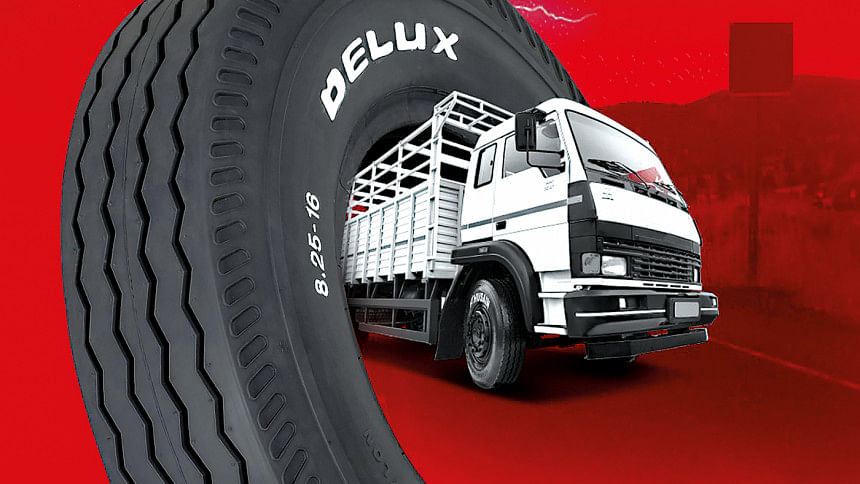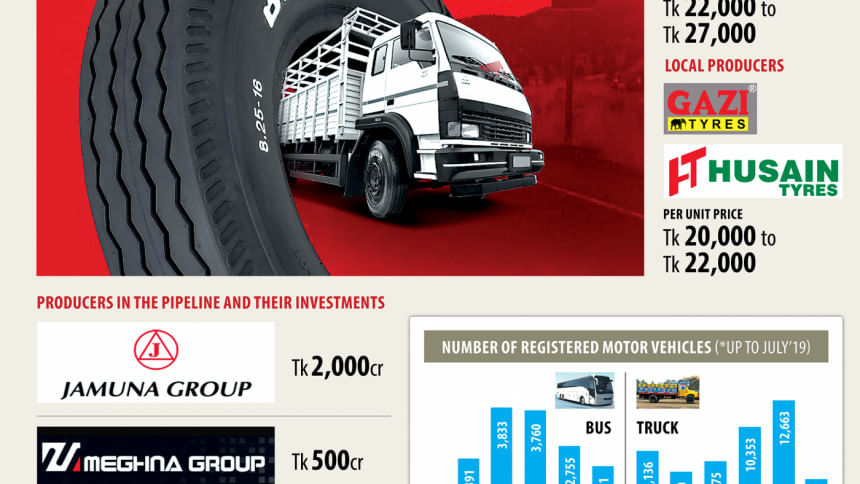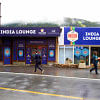Tyre manufacturing awaits a boom with Tk 3,000cr investment

Bangladesh is on the verge of becoming a saturated market in tyre manufacturing by next year with the inclusion of some local and foreign conglomerates in the business.
Apex Husain Tyre and Gazi Tyre currently meet 5 percent demand for tyres of big buses and trucks in the country while imports meet the rest.
Now Jamuna Group, Meghna Group and CEAT are all set to enter the market with huge investments and produce more tyres than what the country needs.
Their entry will help Bangladesh save around Tk 3,000 crore a year that it spends for tyre imports and create employment for over 5,000 people, industry players said.
GPH Ispat and a few other companies are also planning to go for tyre production.
Jamuna Tyres and Rubber Industries Ltd, a concern of Jamuna Group, has invested over Tk 2,000 crore to produce tyres for big bus, truck, passenger car and motorcycle.
"We will go for commercial production within a few months," said Salih bin Abubacker, director for technical and manufacturing at Jamuna Tyres.
Annually, Jamuna will produce 25 lakh units of tyres, almost enough to meet the country's total demand.
Meghna Rubber Industries Ltd, a wing of Bangladesh's largest bicycle tyre and tube manufacturer Meghna Group, is setting up a new Tk 500 crore plant to produce tyres for big buses and trucks.
"Bangladesh's dependence on imported tyres has prompted us to enter the big wheel segment," said Luthful Bari, director for operations of Meghna Group.

Meghna currently produces tyres for motorcycles, easy bikes, CNG-run three-wheelers, light trucks and rickshaws. The company also exports bicycle tyres and tubes.
Apex Husain Group is in the sector for over two decades and it produces the widest range—104 sizes—of automotive tyres now, said Shahroze Husain, its deputy managing director.
Muhammad Fakhrul Islam, controller for accounts and finance of Gazi Tyres, thinks gaining customer confidence is the biggest challenge for them.
"Tyre import duty should be raised by 10 percentage points to 25 percent to promote local manufacturing."

 For all latest news, follow The Daily Star's Google News channel.
For all latest news, follow The Daily Star's Google News channel. 







Comments